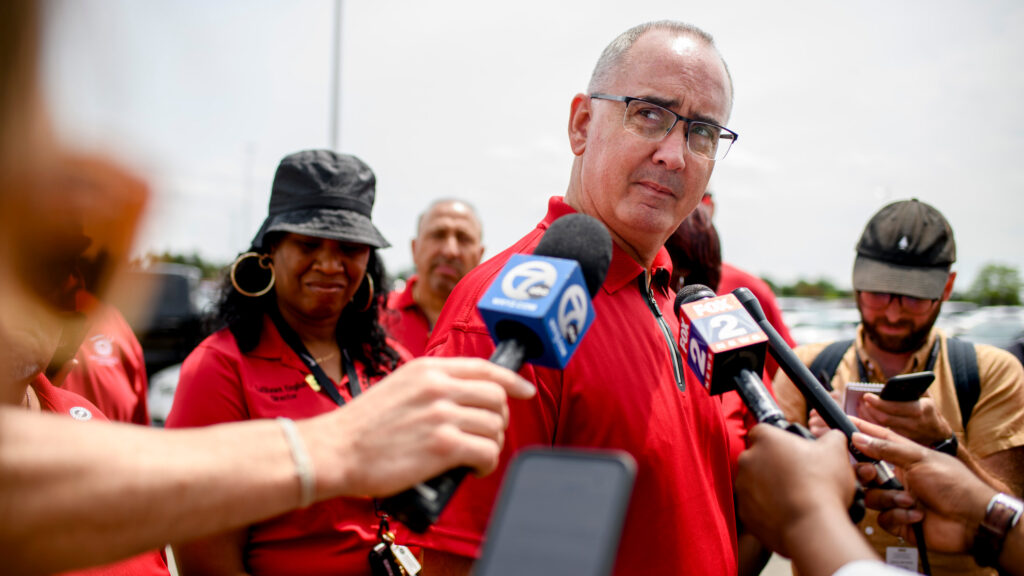UAW Announces Vote at Chattanooga VW Plant

In what will be one of the most important votes in the history of the United Auto Workers, the union has announced a vote in the infamous VW plant in Chattanooga that rejected the union narrowly a decade ago, despite employer neutrality. It’s somewhat unclear if the plant reached the 70% card signing that it claimed it must have before announcing a vote. I suspect it has not, otherwise it would just say so. But I also assume the union is confident here.
I cannot overstate the importance of this. For all the attention paid to the UAW strike last year, the future of the union is not getting better contracts in preexisting unionized shops, though that is important. It’s organizing the masses of unorganized workers in American auto. Many of those shops are in the South, and quite intentionally so. It’s always been extremely difficult to organize the South.
VW is the lowest hanging fruit for the UAW because of that still existing employer neutrality, which exists because of pressure from the German auto union on corporate management in Germany. If it can’t win here, I don’t know if it can win anywhere and that would leave the union, with very different leadership than previously, in the same boat. I do think it will win. If it does, we may see the UAW sweep through southern auto. If not…..it will say a lot about the continued weakness of the American labor movement.
Luis Feliz Leon has been doing an excellent job of late covering these issues at Labor Notes and Jacobin and he has a good rundown on why the vote failed a decade ago and why it is more likely to win now. The short version is fewer white people in the plant today.
In 2014, nine out of ten workers at the plant were white and the majority of them men. Chattanooga’s population is 184,000, with 59 percent of residents white and 29 percent black, according to the latest census estimates. Racist dog whistles were effective at dividing the workforce. The conservative front group Americans for Tax Reform rented billboards around Chattanooga emblazoned with the message: “UNITED
AUTOOBAMA WORKERS.”That divide-and-conquer tactic is less effective now, especially among former union members. Meadows was a union worker in Reno, Nevada. Coming from a union stronghold, he said the biggest obstacle for the campaign was overcoming the South’s deep-seated skepticism and hostility to unions, especially among younger workers who learn anti-unionism from family members. The UAW has been in the crosshairs of the state’s Republican politicians and outside lobbyists from Washington, DC.
But Meadows said that among his Nigerian, Vietnamese, Colombian, and Ukrainian coworkers, there are different sentiments toward unions. “I think because of our great diversity, it’s diluted some of that Southern political mentality. And so it’s making the conversation easier.”
Meadows said Volkswagen prides itself on being a globally progressive company. That has had some impact on its workforce, recently celebrating the contributions of African Americans during Black History Month. The question is whether, should workers win their election, the company will translate those lofty progressive values into bargaining a contract to recognize the contributions of Meadows, Peoples, Costello, and thousands of their coworkers in making it a successful company.
“We take pride in the work we do,” said Victor Vaughn, an assembly worker on the logistics line last month. “We want to be recognized for what we do, not be taken advantage of.”
I knew the plant was pretty white, but 90% white? Wow. White southerners have always been the most hostile group in the country to organizing, which again is why so many factories settled there. I mean, the textile companies in the early 20th century explicitly looked not just to southern towns to move their unionized plants to but very specific southern towns–white ones. So it’s been an effective strategy for a long time. But the South isn’t what it once was and where you have something that looks like modern American diversity, you have a much stronger case to win.
But we will see.


